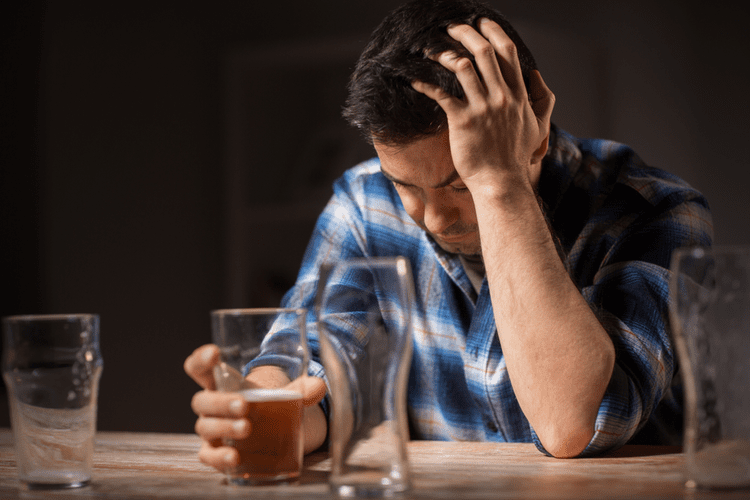Behavioral scientists continue to study the similarities and differences between substance addictions, behavioral addictions and other compulsive behavior conditions like obsessive-compulsive disorder (OCD) and bulimia nervosa. Sober House Letting your friends, family, and those closest to you know about your treatment plan can help you keep on track and avoid triggers. Different substances and behaviors have different effects on a person’s health.
Detox vs. Rehab: Understanding the Key Differences
- This is when a person depends on a substance or behavior emotionally, such as when stressed.
- The work environment in these organizations is collaborative and mission-driven, characterized by a strong commitment to service and community engagement.
- While addiction to substances has often appeared clear-cut, there’s some controversy about what substances are truly addictive.
- Return to use is most common during the first 90 days of recovery.
- Another important position is the peer recovery support specialist, who leverages lived experiences to assist others in their recovery journeys.
- The best model for how to foster this profound transformation is provided by the Twelve Steps that record the experience of early members of A.A.
Strengths-Based CBT is a four-step approach to building positive qualities to develop resilience and influence recovery. To diagnose addiction, your healthcare provider may refer you to a psychiatrist, psychologist or drug and alcohol counselor. Your provider will ask you (and possibly your loved ones) questions about your patterns of substance use or problematic behaviors. This second meaning of recovery involves a process rather than a one-time event – a process that resolves issues underlying the heart attack, thus maintaining a level of wellness that reduces vulnerability to another heart attack.
- Although they may seem similar, addiction and dependence are distinct concepts.
- A small group of adolescents relapsed when facing interpersonal difficulties accompanied by negative emotions and social pressures to drink or use.
- But in the case of an addiction, a person will typically react negatively when they don’t get their “reward.” For example, someone addicted to coffee can experience physical and psychological withdrawal symptoms such as severe headaches and irritability.
How are addictions diagnosed?
- There are coping strategies to be learned and skills to outwit cravings, and practicing them not only tames the impulse to resume substance use but also gives people pride and a positive new identity that hastens recovery.
- Over time, the substances or activities change your brain chemistry, and you become desensitized to their effects.
- Unlike extroverts, introverts are very introspective and spend a lot of time deeply thinking things over and reflecting upon them before making any decisions.
Rehab builds on this by tackling the psychological triggers of addiction, equipping you with strategies for sustained recovery. Understanding the roles of both detox and rehab can empower you to make informed decisions about your or your loved one’s recovery journey. https://thefloridadigest.com/top-5-advantages-of-staying-in-a-sober-living-house/ When people make a recovery plan that includes medication for opioid use disorder, their chances of success increase. These medications can be effective for treatment of addiction to prescription opioids, such as oxycodone, hydrocodone, morphine, and codeine.

Medical Supervision During Detox
- Of course, recovery wouldn’t be possible if you weren’t sober first, so staying sober is one of the most important factors for recovery, but it isn’t the only one.
- The information we provide is not intended to be a substitute for professional medical advice, diagnosis or treatment.
- An interview with Vasavi Kumar and Jyoti Chand on substance abuse in the South Asian community, and barriers to getting help.
- Attending to healing harms done while actively addicted is an ongoing part of maraging the vulnerability to relapse by reducing the shame inherent in recognizing the damage one has done.
- Employment is virtually essential for having a stable and meaningful life.
- By linking these data sets, DPH found that of the 4,304 working-age (16-64 years) Massachusetts residents who died and had at least one workplace injury claim, 741 (17.2 percent) died from an opioid-related overdose between 2011 and 2020.
Behavioral disorder counselors play a pivotal role in healthcare, focusing on clients who struggle with issues such as addiction, eating disorders, or other mental health problems. They provide counseling to individuals, families, and groups and are often involved in creating treatment plans and preventive programs to manage behavioral issues effectively. These professionals work in diverse settings, including hospitals, rehabilitation centers, and private practices and may also handle crisis interventions or participate in community outreach programs.


The shifts in thinking and behavior are critical because they lay the groundwork for changes in brain circuity that gradually help restore self-control and restore the capacity to respond to normal rewards. Under all circumstances, recovery takes time because it is a process in which brain cells gradually recover the capacity to respond to natural sources of reward and restore control over the impulse to use. Another widely applied benchmark of recovery is the cessation of negative effects on oneself or any aspect of life. Many definitions of recovery include not only the return to personal health but participation in the roles and responsibilities of society. Because addiction can affect so many aspects of a person’s life, treatment should address the needs of the whole person to be successful. Counselors may select from a menu of services that meet the specific medical, mental, social, occupational, family, and legal needs of their patients to help in their recovery.